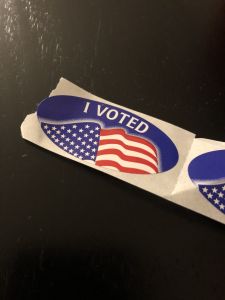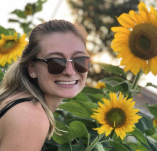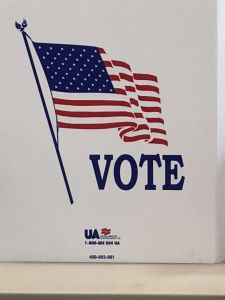Thousands of voters across the country are being suppressed without access to early voting. Pennsylvania is one of 12 states that does not allow for no excuse early voting, also known as early voting.
Early voting allows for registered voters to cast their ballots before the designated election day for that state. Currently, 38 states including D.C. allow early voting.
In the 2012 election, 32 percent of United States voters relied on early voting to have their ballot cast.
Early voting is used by college students, senior citizens, people with disabilities, people who work or anyone else who may struggle getting to the polls at a designated time on a designated day.

Early voting allows voters to cast their vote in an election during a designated range of dates, which affords them more flexibility.
“Early voting laws are supposed to make it easier for people to get to the polls. But like other attempts to expand voting access, they’ve often become yet another partisan battleground,” said Vox writer Emily Stewart.
Some states already allow up to two or three weeks for people to cast their ballot, while other states have limited the time to three days or less. Others, like Pennsylvania, do not allow early voting at all.
“It impacts some people disproportionately, particularly people who work in hourly wage jobs,” Pennsylvania State Senator Daylin Leach said in an interview. “It also affects moms who have young kids as they have different and unexpected schedules.”

Madisen Young, a 20-year-old college student who resides in Pennsylvania but attends Stockton University in New Jersey, was not able to vote in the last election, and is likely not going to be able to vote in the next. As a college student with two part-time jobs Madisen was not able to vote in the last election. She said that if Pennsylvania allowed for early voting she would have easily been able to utilize that service and contribute her vote. “The more time I have the better,” said Young who was frustrated that she was unable to participate in the democratic process last election.
Early voting laws are determined on a state-by-state basis by state laws. These laws are determined by elected officials at the state level. These legislatures make their own rules and regulations surrounding early voting.

Another college student who was unable to vote in the last election is Kerri Hanshaw. She knows how important voting is and was deeply frustrated she was not able to vote in the last election. She described the situation as a lose-lose because she wanted to have her voice heard but was unable to drive home from college in the middle of the day in the middle of the week.
“With more flexibility and opportunity, people are more likely to vote, increasing overall voter turnout,” Leach said. Restricting early voting limits those who have different and unexpected schedules disproportionately.
The goal for early voting is to get people involved in the democratic process. As people are being restricted of this right they are becoming frustrated and unrepresented. With the allowance of an early voting system in Pennsylvania, thousands more people would have their votes counted and become as equally represented as their fellow Americans.
“Like a lot of election legislation, whether people support it or not, it tends to coincide with whether they think it helps them politically,” Leach said. “The only reason [early voting is] not a thing is because it’s political.”
Cabrini senior Isabella Romani believes early voting would be beneficial to students. “It opens up more flexibility because I would have more time and options with voting,” Romani said.
Cabrini junior Ricky Colman agrees that early voting would increase voting opportunities. As an involved student, Colman finds it difficult to get to the polls on a specific day, especially when he has class, homework and extracurricular activities. With the addition of early voting he believes that he would be more likely to participate in the democratic process.
With more opportunities to vote there would be an increase in overall voter turnout.

Young, Hanshaw and Romani represent a small part of a much larger issue. College students are limited. Students are taught about the democratic process and the importance voting has, even just one vote. But with restrictions being placed on voting and many states not allowing early voting, college students can’t get to the polls to cast their ballot.
The goal for early voting is to get people involved in the democratic process. As people are being restricted of this right they are becoming frustrated and unrepresented. With the allowance of an early voting system in Pennsylvania, thousands more people would have their votes counted and become as equally represented as their fellow Americans.


